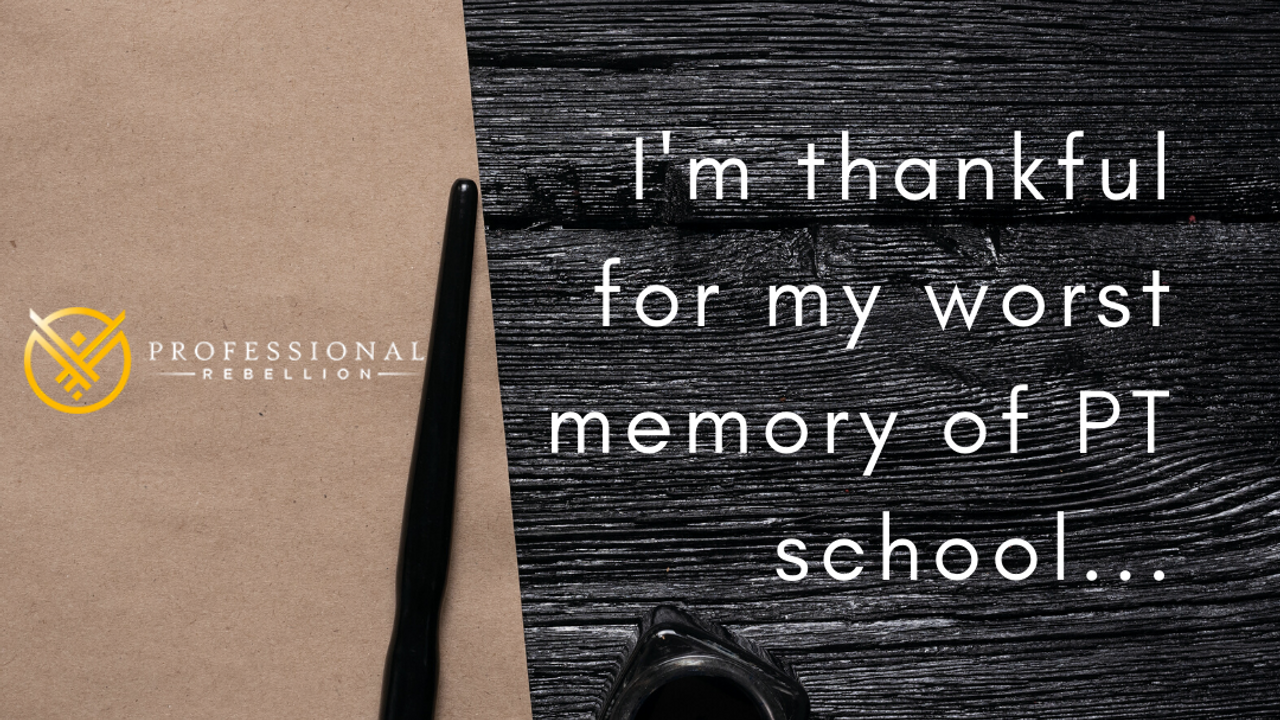Can stress in your job or career be a good thing?
Stress is not always a bad thing. There are instances when using energy can actually give you more energy. Stress may not always be something to run from.
Phil: All right, Jenna, I want to talk about good stress versus bad stress, good exhaustion versus bad exhaustion. You taught a continuing education course this weekend, which is one of your dream career goals. And it was a lot of stress leading up to it. A lot of stress in the weekend and left you completely exhausted. Tell me how that can be a good thing.
Jenna: So it's definitely a different kind of stress when you think about it, because yes, I felt stressed, but it was easier for me to reframe it as like excitement and nerves versus like feeling like I'm actually exhausted or like I'm getting burnt out because you know, all week I practiced and I practiced and it was like every minute that I had to think about anything, I was thinking about the course that was leading up, right? And that can feel stressful, but...
I'm thankful for my worst memory of PT school . . .

I have to tell you about my worst experience during PT school. Years have passed, but I still cringe when I think about it today.
My school had a group poster presentation where students and faculty would rotate throughout the room and we would share our research. I wasn’t nervous about presenting. I prepped some, but while other classmates practiced and practiced, I felt confident in my ability.
That is until the first group of students and professors rotated to our poster. It was my turn to speak and NOTHING was happening. I was frozen. I didn’t know what to say, and I stared as everyone uncomfortably waited for me to speak. Finally, I did. Only it wasn’t my voice. It was high-pitched and cracking. It was terrible. I’d NEVER had trouble with public speaking, but there I was unable to recall anything about the research I worked on all semester.
I hated that moment and I still hate thinking about it. Yet, every time I have to give a presentation or a lecture...
How do you find your passion or "your thing" in PT?
How do you find your area of passion and expertise in physical therapy? When you're a new PT or trying to find your place, is there anything that can help you figure it out?
Jenna: Okay, Phil so how do you find your biggest passion or area of passion within physical therapy? So when I think of you, I automatically think of injury reduction. I think of movement. I think of a lot of different things that you're very well known for and that you're super passionate about. And I struggled with this early on of like, how do you find your thing, I guess you could say. And I feel like a lot of PT students ask like, how do you find your thing? So I guess my question is, how do you find that area that you're most passionate about?
Phil: Yeah, I think that this took me a while to fully understand. I think we have it backwards.
I think we have it such that find your passion and then follow it. I think the advice actually should be
go do a bunch of stuff and you will find your...
Where are all the older PTs?
Where are all the older PTs? This question made me laugh and I gave a few ideas, but I am not sure I know the answer. I am curious what everyone thinks?
Phil
Rebel Elite Book January 2022 - Conscious Coaching

Hey Rebels,
Most months our Rebel Elite Community reads a book together. While you have to take the Rebel PT Roadmap course to gain access to our monthly mentorship with the group, we thought you still might want to be included in the great books we read. This month is Conscious Coaching by Brett Bartholomew!
We can't wait to discuss the applications to team building and patient care. If you have any insights, feel free to share them with us!
Break Barriers,
How do you know if you should leave the PT profession or just change jobs
What if the problem isn't physical therapy? When work is lousy, or your job is stressful, it is only natural to conclude that it is bad everywhere. You talk to colleagues and it seems like no one is any better off than you. And so you start wondering if maybe you need to get out of physical therapy completely.
At what point in the interview should you ask about salary?
Should you ask about money during an interview? If so, when? How? Money isn't everything, but it is something. Knowing how to approach the topic will prepare you to be able to negotiate for what you deserve.
What is the biggest barrier to change in your career?
Getting stuck in your PT career is common, but it doesn't mean that you can't do anything about it. We get so used to hearing about the bad things about PT that we stop seeing the possibilities. If you are stuck, it's not hopeless. The possibilities are there.
Phil: Okay, Jenna, one question that always . . . when I see people miserable in their career, it really . . . it hurts. I mean, that's why we do what we do because, you know, you don't have to be miserable. But what are the biggest barriers to change? I mean, it's a huge deal. Why do we struggle so much with it? Why do we struggle so much?
Jenna: I think two stick out to me. I'm sure there's more than that. I'm sure there's a lot of reasons why we get stuck. One is not knowing what's next. As you know, a group of individuals who have gone to school for a really long time, we have to be high achievers. That's in us to some...
How do you find out about a PT company's culture during the interview?
We all want to find a company with a great culture. And every company will say during an interview that they have one. But, how do we truly find out?
Make “I Should” Rewarding


I haven’t wanted to write lately. It is frustrating, and I’ve found myself constantly saying, “I should just write.” I’ve said it hundreds of times in the last few months with very little to show for it.
Not wanting to write is a weird feeling because I’ve never had to force myself to write. Most of the time, writing was what I used to procrastinate doing other things.
I don’t think I’m alone in having difficulty motivating myself to do things lately (even things I genuinely enjoy). I don’t know if we blame the pandemic, if we blame the constant change, or if we blame the stress of it all. But I think I received some excellent advice the other day.
Someone told me to stop thinking about why I was having difficulty motivating myself, stop trying to figure out what is to blame, and stop beating myself up over it.
The solution is simple...
For all the things you say, “I should X” or “I should Y,” make them...
